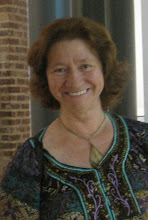This is a post I did yesterday for the American Slaves, Inc. blog I'm sharing on that website.
As a white person - an older white woman - I've watched the "correct" term for descendants of slaves change repeatedly. I remember as a young girl watching a children's "made for TV" movie very early one morning. Everyone else was still sleeping, so I had the TV, an old black-and-white set, turned down low. The movie was about the desegregation of schools, and in the movie, two little girls, one "colored" (as we said then) and one white, became friends.
I remember one scene vividly. They're talking about race. The white girl says to the other girl, "What should I call you?" The "colored" girl smiles and says proudly, "Negro. That's what I am."
Still smiling, she asks, "What should I call you?" And the white girl smiles shyly and says, "Caucasian, I guess." I remember thinking "Caucasian?? That's weird." And I wondered if "colored" people thought being called "Negro" was weird too. The scene has stuck with me all these years.
Maybe I remember it so vividly because the show was interrupted with updates on the news of Dr. Martin Luther King, Jr.'s assasination. I am ashamed to admit that I didn't recognize the irony of that at the time, and even more ashamed to admit that I was dreadfully disappointed that I missed the rest of the movie.
As a teenager, I remember the shift to "Black" as the correct term. "Black pride" and "Black is beautiful," reading Soul on Ice, Manchild in the Promised Land, and the poetry of Langston Hughes - it all seemed very exciting. It seemed very far removed from the old days of slavery, and we thought - I thought - that true equality was just around the corner.
Of course we know now that it wasn't.
The TV series "Roots" came next, and again there was a shift - "African-American" was the new term. And again, that seemed very exciting and hopeful.
But it got a little confusing when I realized not all "black" people wanted to be called "African-American." And I'd remember how I felt when the little white girl on TV said she was "Caucasian." So sometimes, I'd ask, "Do you prefer being called Black or African-American?" Sometimes I'd try to guess. I mean, if someone's wearing African clclothes, "African-American" seemed to be a pretty safe bet.
Then, about twelve years ago, I started working in the West End. I worked with an "African-American" woman named Ayo, who was very focused on connecting people with their African heritage. She was adamant that "African-American" was the only correct term, and was quick to let me know that anything else was racist. So of course I used "African-American" exclusively for years.
Then I read America's Little Black Book and became connected with American Slaves, Inc. Suddenly "African-American" was no longer acceptable! But this shift in terms is different.
It seems to me that previous changes have been an effort to put more distance between the descendants of slaves and the history of slavery. I wanted to support that effort, thinking that was the path to ending racism. Norris Shelton challenges the idea that distance between the past and the present is the goal. He embraces the connection with the past. He makes it clear that the shame of slavery does not belong to the descendants of slaves.
Mr. Shelton takes this idea to it's furthest extreme and refers to himself and others as "slaves." I understand his point, but can't possibly imagine myself ever referring to descendants of slaves as "slaves." In any case, I'm interested in other people's thoughts on this, and on their ideas about the numerous name changes that descendants of slaves have undergone.
Let me know what you're thinking!
Caged Canaries – by KYCat
-
Those of us that saw this coming years ago were called hysterical and
reactionary. That no one could possibly take away what had been granted.*
We saw acce...
3 years ago




No comments:
Post a Comment